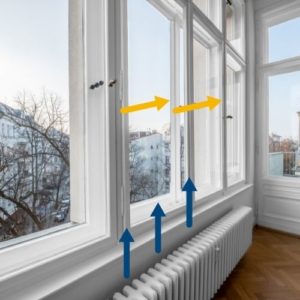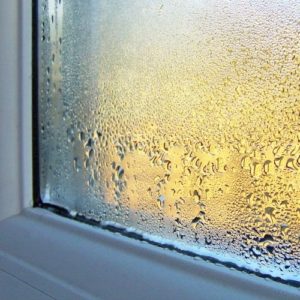Retaining heat is a considerable concern for homeowners and businesses of all types and sizes. With windows causing more than a quarter of all heat loss, you don’t have to break the bank with heating bills to combat this. Using energy-efficient glass can help reduce annual energy costs and severely reduce carbon footprint.
How does it work?
 Heat is always directed towards the cold, meaning that any warmth created by the radiators or heaters will try to escape. Windows made from single, thin glass panes will let heat escape easily, whereas windows that use two or more energy-efficient coated panes reflect the heat waves back inside and reduce the need for additional heating or insulation.
Heat is always directed towards the cold, meaning that any warmth created by the radiators or heaters will try to escape. Windows made from single, thin glass panes will let heat escape easily, whereas windows that use two or more energy-efficient coated panes reflect the heat waves back inside and reduce the need for additional heating or insulation.
The gaps between the panes also help to keep heat from escaping. Usually, the spaces are filled with air or gases like argon, krypton, or xenon, which act as insulators. The more panes in the window mean more glass and more insulating gaps to keep the heat inside.
When considering an energy-efficient double glazed unit, you need to evaluate which type best suits your project. Glass is rated by how much heat it prevents escaping and how much light and air it allows to pass through.
Depending on your use and environment, you may need different rating levels.
Can energy-efficient glass keep interiors cool?
Although the glass can be very effective at keeping the heat in winter, it can do quite the opposite in the hot summer months. The air between each pane of glass in an energy-efficient coated unit provides an extra layer of insulation, increasing thermal resistance.
This reduces the amount of heat that can escape and prevent heat convection from outside to inside, keeping you cool without opening windows or installing air conditioning.
What are the other benefits of energy-efficient glass?
 One of the most significant and most obvious benefits of using energy-efficient glass is the result of lower energy bills and increased sustainability. Replacing single-pane windows with an energy-efficient double glazed unit could save you over £100 a year and reduce your carbon usage by over 400kg.
One of the most significant and most obvious benefits of using energy-efficient glass is the result of lower energy bills and increased sustainability. Replacing single-pane windows with an energy-efficient double glazed unit could save you over £100 a year and reduce your carbon usage by over 400kg.
Reduced condensation is another benefit as energy-efficient glass does not get cold enough for condensation to form. Not only does this make windows and doors easier to see out of, but it can also prevent water damage to window frames and surrounding materials.
With the above benefits, using energy-efficient glass can add value to any project as it is a popular feature many home buyers and business owners are looking for.
Find out more about the benefits and uses of glass in the workplace and at home, or you can get in touch today to speak to one of our friendly professionals.
Make sure to follow us on Twitter, Facebook, Linkedin and Instagram.



